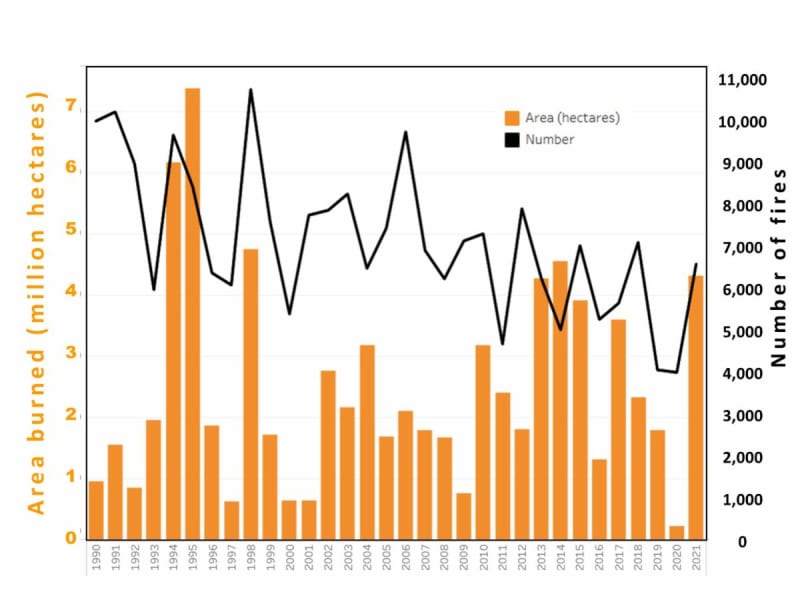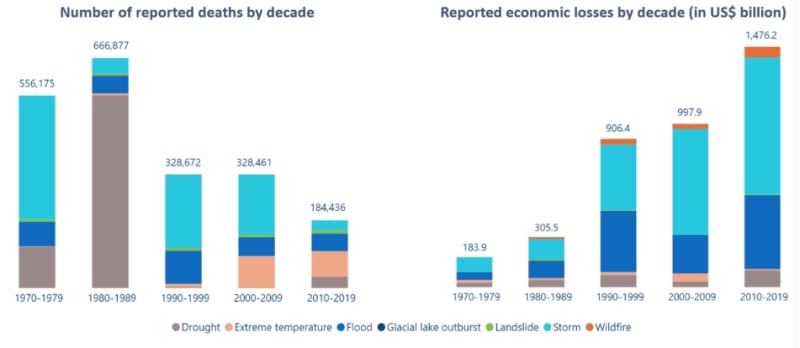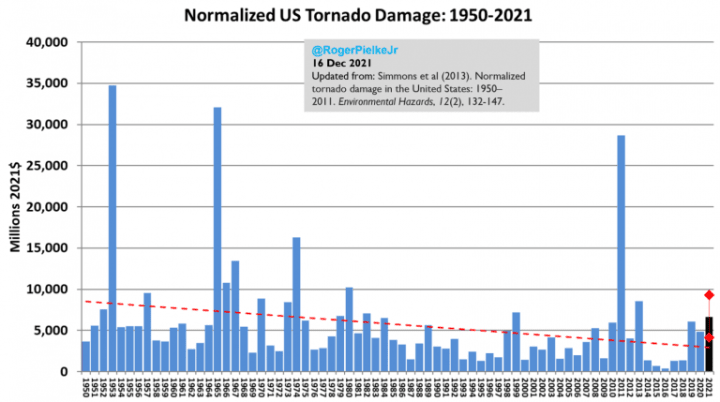Navigation
Install the app
How to install the app on iOS
Follow along with the video below to see how to install our site as a web app on your home screen.
Note: This feature may not be available in some browsers.
More options
Style variation
-
Congratulations cowski on being selected by the Eng-Tips community for having the most helpful posts in the forums last week. Way to Go!
You are using an out of date browser. It may not display this or other websites correctly.
You should upgrade or use an alternative browser.
You should upgrade or use an alternative browser.
Things are getting better, or at least not changing, part 1 10
- Thread starter GregLocock
- Start date
- Status
- Not open for further replies.
- Thread starter
- #23
GregLocock
Automotive
Eastern Canadian wildfires reducing in frequency and area burned
According to Canada’s Department of Natural Resources, fires have been occurring for thousands of years in the boreal forests of eastern Canada - not exactly unprecedented. In addition, they call fire a primary change agent that is as crucial to forest renewal as the sun and rain -perhaps not a calamity either.
It appears that 2023 is on pace to be a year with unusually high numbers of fires. Yet the previous year was one of historically low numbers. The Canadian National Fire Database (2023) provides facts to dispute the idea of climate change-driven increases in fires in Canadian fires. According the CNFD, there has been a significant and continuing decline in the number of fires and no discernible trend in the area burned.

Cheers
Greg Locock
New here? Try reading these, they might help FAQ731-376
According to Canada’s Department of Natural Resources, fires have been occurring for thousands of years in the boreal forests of eastern Canada - not exactly unprecedented. In addition, they call fire a primary change agent that is as crucial to forest renewal as the sun and rain -perhaps not a calamity either.
It appears that 2023 is on pace to be a year with unusually high numbers of fires. Yet the previous year was one of historically low numbers. The Canadian National Fire Database (2023) provides facts to dispute the idea of climate change-driven increases in fires in Canadian fires. According the CNFD, there has been a significant and continuing decline in the number of fires and no discernible trend in the area burned.

Cheers
Greg Locock
New here? Try reading these, they might help FAQ731-376
- Thread starter
- #24
GregLocock
Automotive
People are getting richer. Divide the cost of catastrophes by the number of people killed.

Cheers
Greg Locock
New here? Try reading these, they might help FAQ731-376

Cheers
Greg Locock
New here? Try reading these, they might help FAQ731-376
- Thread starter
- #26
GregLocock
Automotive
Yup, on average people are getting richer and/or fewer poor people are dying from natural disasters. Which one is bad, dik? Please do let us know. There's a reason why the the dooms dayers are called people haters. Hoping for the worst for other people.
Cheers
Greg Locock
New here? Try reading these, they might help FAQ731-376
Cheers
Greg Locock
New here? Try reading these, they might help FAQ731-376
I'm not so sure about people getting richer, I know that some people are. As far as people living longer it's generally the case... the US life expectancy took a recent dip due to fentanyl related deaths... I understand.
-----*****-----
So strange to see the singularity approaching while the entire planet is rapidly turning into a hellscape. -John Coates
-Dik
-----*****-----
So strange to see the singularity approaching while the entire planet is rapidly turning into a hellscape. -John Coates
-Dik
- Thread starter
- #28
GregLocock
Automotive
Irrelevant. You presented data, I interpreted it. Answer the question with facts not red herrings.
Cheers
Greg Locock
New here? Try reading these, they might help FAQ731-376
Cheers
Greg Locock
New here? Try reading these, they might help FAQ731-376
- Thread starter
- #29
GregLocock
Automotive
Declining damage due to tornadoes

Cheers
Greg Locock
New here? Try reading these, they might help FAQ731-376

Cheers
Greg Locock
New here? Try reading these, they might help FAQ731-376
- Thread starter
- #30
GregLocock
Automotive
Now, is that because the frequency/intensity of tornadoes has diminished in general? Or people have stopped building shacks in silly places? Or they are building better shacks? Probably all 3 but whatever the mix, the result is positive. Adaptation.
Cheers
Greg Locock
New here? Try reading these, they might help FAQ731-376
Cheers
Greg Locock
New here? Try reading these, they might help FAQ731-376
TugboatEng
Marine/Ocean
Jupiter has a permanent hurricane. It also has no CO2. ![[atom] [atom] [atom]](/data/assets/smilies/atom.gif)
![[atom] [atom] [atom]](/data/assets/smilies/atom.gif)
TugboatEng
Marine/Ocean
We had a lot of temporary workers some years back and my manager had the funniest comment. He said, if we get one more trailer here we're going to have a tornado.
JoshPlumSE
Structural
I saw a guy talking about the "benefits of fossil fuels" recently. He actually made some good points.
He perceives the "Green New Deal" type folks very negatively. The problem with their predictions is that they never account for the benefits of fossil fuels. What he means by that is that you can see over the last 100 or 150 years that the climate related deaths (per capita) have gone way, way down during the time that we raised the temperature by about 1 degree Celsius. Why? Because of the BENEFITS that we've gained from abundant, cheap energy. We have AC in the Summer, wee burn gas or such in the winter. Essentially, our energy usage has allowed us to conquer climate related catastrophe unlike any other time in history.
His conclusion is one of hopefulness. Essentially saying that there we have "greened" the world over the last 50 years. Meaning plant life from space is flourishing. Obviously, in places where people live, this is due to agriculture and gardening and water storage and such. But, this also occurs in other areas where human have very little impact. That might mean we've got increased moisture in these regions, it might be related to higher CO2 levels (because CO2 helps plants grow). And, that we (as a species) will continue to flourish even with rising CO2 levels and rising temperatures.
He perceives the "Green New Deal" type folks very negatively. The problem with their predictions is that they never account for the benefits of fossil fuels. What he means by that is that you can see over the last 100 or 150 years that the climate related deaths (per capita) have gone way, way down during the time that we raised the temperature by about 1 degree Celsius. Why? Because of the BENEFITS that we've gained from abundant, cheap energy. We have AC in the Summer, wee burn gas or such in the winter. Essentially, our energy usage has allowed us to conquer climate related catastrophe unlike any other time in history.
His conclusion is one of hopefulness. Essentially saying that there we have "greened" the world over the last 50 years. Meaning plant life from space is flourishing. Obviously, in places where people live, this is due to agriculture and gardening and water storage and such. But, this also occurs in other areas where human have very little impact. That might mean we've got increased moisture in these regions, it might be related to higher CO2 levels (because CO2 helps plants grow). And, that we (as a species) will continue to flourish even with rising CO2 levels and rising temperatures.
-
1
- #38
- Thread starter
- #39
GregLocock
Automotive
Gives data sources, here's the anbstract
Is the number of global natural disasters increasing?
Gianluca Alimonti &Luigi Mariani
ABSTRACT
We analyze temporal trends in the number of natural disasters reported since 1900 in the Emergency Events Database (EM-DAT) from the Center for Research on the Epidemiology of Disasters (CRED). Visual inspection suggests three distinct phases: first, a linear upward trend to around mid-century followed by rapid growth to the turn of the new century, and thereafter a decreasing trend to 2022. These observations are supported by piecewise regression analyses that identify three breakpoints (1922, 1975, 2002), with the most recent subperiod 2002–2022 characterized by a significant decline in number of events. A similar pattern over time is exhibited by contemporaneous number of geophysical disasters – volcanoes, earthquakes, dry landslides – which, by their nature, are not significantly influenced by climate or anthropogenic factors. We conclude that the patterns observed are largely attributable to progressively better reporting of natural disaster events, with the EM-DAT dataset now regarded as relatively complete since ∼2000. The above result sits in marked contradiction to earlier analyses by two UN bodies (FAO and UNDRR), which predicts an increasing number of natural disasters and impacts in concert with global warming. Our analyses strongly refute this assertion as well as extrapolations published by UNDRR based on this claim.
Previous versions of this analysis got cancelled by the usual suspects.
Cheers
Greg Locock
New here? Try reading these, they might help FAQ731-376
Brian Malone
Industrial
I recognize I am skirting being pedantic: shouldn't 'natural diasters' truly be called 'human diasters' or maybe 'extreme natuaral events'? After all, most if not all of the effects are only diasterous in the context of humans. Nature continues its course regardless of any perceived effect to humans or our existence.
- Status
- Not open for further replies.
Similar threads
- Replies
- 32
- Views
- 15K
- Replies
- 163
- Views
- 88K
- Locked
- Question
- Replies
- 362
- Views
- 28K
- Locked
- Question
- Replies
- 355
- Views
- 12K
- Locked
- Question
- Replies
- 366
- Views
- 12K
